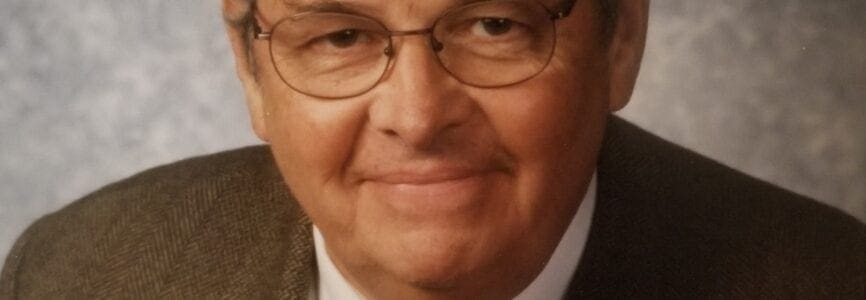Bioethics Forum Essay
Tribute to Robert M. Veatch: Human Rights and Other Commitments
Robert M. Veatch, a bioethics pioneer and the first research associate at The Hastings Center, died on November 9. He was 81 years old. Bob and I first met at a Hastings Center conference on the teaching of medical ethics that he convened in June 1972. In the mid-1970s we led parallel efforts to capture the burgeoning literature of bioethics in bibliographies. At the same time, we worked together as associate editors for the Encyclopedia of Bioethics. After Bob’s move to Georgetown’s Kennedy Institute of Ethics in 1979, we became colleagues, frequent collaborators, and good friends.
How should one characterize the central themes and major passions of Bob’s long and productive life? An overarching theme, perhaps the most important theme, was Bob’s identification with underprivileged or oppressed groups who were seeking to assert their basic human rights. These groups included people of color, people living in developing nations, students, research participants, and patients. A corollary of Bob’s commitment to human rights was his lifelong suspicion of most authority figures–military leaders, university administrators, many politicians, researchers, and physicians. A second overarching theme was Bob’s commitment to interdisciplinary scholarship. He earned a master’s degree in a biomedical field, pharmacology, before undertaking graduate studies at Harvard that were allocated equally among three fields – religious studies, philosophy, and the social sciences. In his later research and writing, Bob was a world-class expert on specific biomedical topics while moving seamlessly among the arenas of moral philosophy, religious ethics, history, and public policy.
Robert Marlin Veatch was born in Utica, New York, on January 22, 1939. When he was in elementary school, Bob’s family moved to Evanston, Illinois, where his father owned and operated a downtown pharmacy. From 1957 to 1961 Bob attended Purdue University. A life-long pacifist, he protested the university’s requirement that all undergraduate males participate in ROTC (Reserve Officers’ Training Corps) training. In 1961, the student senate approved a bill recommending that the university make ROTC training voluntary rather than mandatory. During the debate on the bill Bob, the student body president, commented that “a student should be obligated to take courses only so long as they are consistent with his educational objectives.” He added, “Compulsory ROTC definitely violates this freedom to choose” (The Purdue Exponent, February 10, 1961). Four years later Purdue’s Board of Trustees would agree to make the ROTC program voluntary.
Bob earned a BS degree in pharmacy from Purdue, summa cum laude, in 1961. One year later he received an M.S. degree in pharmacology from the University of California Medical Center in San Francisco.
Bob and his first wife, Laurelyn, were accepted as Peace Corps volunteers in 1962, the second year of the Corps’ existence. In the syllabus for their training program Bob summarized his first 23 years:
“Evanston, Illinois. BS Purdue University 1961. MS, University of California (Berkeley) 1962 (N.S.F. Fellowship). President of Student Body, Senator in Student Senate, President, Indiana Methodist Student Movement . . . graduate Student Council. Summers as apprentice pharmacist and as a factory laborer. Minor political campaigning. Interests: politics, political science, philosophy, theology, baseball, guitar, piano. . . .”
From 1962 to 1964 Bob and Laurelyn served as Peace Corps volunteers in Nigeria, a newly independent nation. During that time Bob taught at a high school in Ogbomosho and at the University of Ife in Ibadan.
After the couple’s return to the United States in 1964, Bob began graduate study at the Harvard Divinity School. In 1967 he earned his BD (today M.Div.) degree, magna cum laude. He then pursued a graduate program in religion and society, with a focus on medical ethics. Bob earned his MA degree in 1970 and his PhD in 1971. While at Harvard, Bob took courses with, or was influenced by, faculty members John Rawls, Talcott Parsons, Renée Fox, Henry K. Beecher, Robert N. Bellah, James Luther Adams, Ralph B. Potter, Jr., Arthur J. Dyck, and Harvey Cox.
During the late 1960s Professors Beecher, Potter, and Dyck were in contact with a young philosopher in Hastings-on-Hudson, New York, about an interdisciplinary research institute that he hoped to establish. The philosopher’s name was Daniel Callahan. Bob and Dan met. After the founding of The Hastings Center in 1969, Dan offered Bob a position as the first research associate of the Center.
The Hastings Center opened its first office on September 1, 1970. Before that date the Center had held meetings at the homes of Dan and Sidney Callahan and Willard and Betty Gaylin. In a 2014 interview, Bob mused that he was the first person to arrive at the office and thus had the honor of obtaining the key from the landlord to open the office.
In his early years at The Hastings Center, Bob was the staff director of the research group on death and dying. In 1975 he was promoted to the role of senior associate. Later in his tenure Bob also served as the staff director of the research group on ethics and health policy.
Bob and Laurelyn’s older son, Paul, recently reminisced about the family’s years in Hastings-on-Hudson:
“When my father was at The Hastings Center, we used to spend time at the homes of Dan Callahan and Will Gaylin. Dan’s son, David, was in my class at school. I remember both Dan and Will from the perspective of an 8-year-old child. For example, what I remember most about going over to the Gaylins’ house was that they had a huge modern statue in their living room, a bull made of car bumpers. When I was a child, I loved to climb on the statue, which (amazingly) they allowed me to do.”
In early 1979 André E. Hellegers, succeeded in recruiting Bob to the Kennedy Institute of Ethics at Georgetown University. From 1979 through 2015 Bob was a senior research scholar and professor of medical ethics at the Kennedy Institute. In 1981 he also received an appointment as a professor of philosophy at Georgetown. Bob officially retired in 2015, but he continued, each day, to do research and writing in his Institute office until the Covid-19 pandemic forced the university to shut down in March.
What are some of the recurring topics in Bob’s dissertation, books, and articles? A first theme was the sharp divide between facts and values. Bob’s Harvard dissertation bore the long title “Value-Freedom in Science and Technology: A Study of the Importance of the Religious, Ethical, and Other Socio-Cultural Factors in Selected Medical Decisions Regarding Birth Control.” In the dissertation Bob demonstrated that physicians’ recommendations about whether women should use the birth-control pill were closely correlated with their interpretations of the facts about the probable benefits or harms of this relatively new medical option.
A second theme in Bob’s thought was the need for constant interaction and dialogue between the natural sciences and medicine, on the one hand, and the social sciences and humanities, on the other. In Bob’s view, argued most clearly in his book titled Disrupted Dialogue, medicine flourished when the field was involved in meaningful discussions with the humanities. Conversely, medicine atrophied when it developed professional codes of ethics in isolation.
A third theme was Bob’s identification with various human rights movements, especially movements that we associate with the 1960s. Bob clearly applauded the civil rights movement, the patients’ rights movement, and the protests against U.S. involvement in the Vietnam War. According to his brother, Bill, in 1961, Bob and a Black friend had planned to travel together to the American South as Freedom Riders. Much to the disappointment of both Bob and Henry, their plan was quashed by both sets of parents.
A fourth and final theme was Bob’s thesis that the foundations of bioethics cannot be reduced to just a few principles. In what might be regarded as a capstone article about his approach to ethics, Bob compared 11 ethical theories, including his own. In this essay Bob argued for the importance of distinguishing between beneficence and nonmaleficence, thus accepting the thesis of Beauchamp and Childress and rejecting, at least in part, the three-principle view enshrined in the Belmont Report. Instead of accepting Beauchamp and Childress’s principle of respect for autonomy, Bob argued for a principle of respect for persons, which he then analyzed into four subsidiary principles: autonomy, fidelity, veracity, and avoiding killing. In Bob’s view, it is difficult to derive the latter three principles from respect for autonomy. Without further elaboration Bob also mentioned two other principles: gratitude and reparation.
Bob played an important role as a consultant to the National Commission for the Protection of Human Subjects and the President’s Commission on Bioethics. He was deeply involved with the Karen Ann Quinlan case in New Jersey, Senator Edward Kennedy’s 1973 hearings on human experimentation, and the Baby K case in Virginia. He was an internationally recognized expert on the transplantation of solid organs, serving on the Ethics Committee of the United Network for Organ Sharing (UNOS) for 18 years. In 2008 the American Society for Bioethics and Humanities chose Bob for its Lifetime Achievement Award. Another singular honor was Bob’s invitation to present the Gifford Lectures at the University of Edinburgh, also in 2008. Bob later developed his six Gifford Lectures into the book, Hippocratic, Religious, and Secular Medical Ethics: The Points of Conflict.
In May 2004 Scott Stossel published a biography of R. Sargent Shriver, the first director of the Peace Corps. When the book was released, Georgetown University hosted a public celebration of Sarge’s career as a public servant. Bob and his Kennedy Institute colleagues attended this event, held in the university’s Intercultural Center. In a recent conversation, our Kennedy Institute colleague Madison Powers recalled a particular moment that occurred after the formal part of the celebration had ended:
“Bob carried his original Peace Corps identification card in his wallet for many years. I remember being with him and Sarge Shriver and several others. Bob reached into his wallet and pulled out the card to show it to Sarge. The smile on Sarge’s face was priceless. So too for Bob. He was very proud of having been in one of the earliest cohorts.”
Bob’s colleagues and his students knew him as a generous person, always willing to take time to discuss any topic on our minds. Bob was modest about his achievements. He was also a highly disciplined and productive scholar. On first meeting, Bob seemed quite serious. Colleagues and students who learned to know him well were also privileged to enjoy Bob’s wry sense of humor. We will sorely miss him.
LeRoy Walters is a professor emeritus at the Kennedy Institute of Ethics and the philosophy department at Georgetown University.












